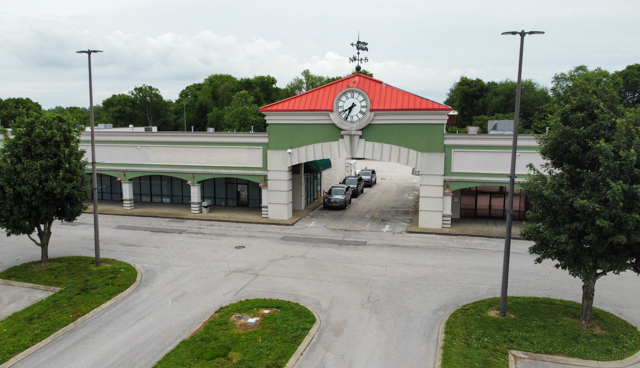City, WKU look at energy savings
Published 12:00 am Monday, March 9, 2009
For local governments and Western Kentucky University, energy efficiency is less about counting dollars saved than about keeping use contained at stable levels.
“Our first priority, operationally, is to try and control our costs in a volatile energy market,” City Manager Kevin DeFebbo said.
Though it’s fairly easy to measure month-to-month savings on heating bills from turning down thermostats, fluctuating prices make long-term savings harder to figure, he said.
For the first time, each city department is mapping out its overall energy consumption as a part of this year’s budget, DeFebbo said. That will be measured against past years’ gasoline, electric and propane use to spot increases and big drains, he said.
“You can’t control it unless you know what you’re consuming,” DeFebbo said.
Some of those are obvious, such as City Hall Annex, which is an old building with lots of glass, he said. Just how much that costs the city should be known soon. Tennessee Valley Authority has conducted an energy-use audit of all city buildings, and improvements responding to that are being added to this year’s city budget, under way now, said Facility Manager Jackie Edwards.
Financial results of those improvements won’t be known for a couple of years, when energy use then can be measured against current levels, DeFebbo said.
Although interest in energy efficiency is heightened by the current recession, public agencies have been moving toward greater efficiency for some time. The city has contracted with various companies since 2000 to upgrade its systems with more efficient heat pumps, water heaters and ventilation, Edwards said. Activity has accelerated since 2007, including replacing light bulbs and caulking windows, she said.
Warren County hasn’t implemented a detailed, comprehensive energy program, but ever since its $3 million budget shortfall two years ago county employees have been taking basic steps to cut energy costs, Warren County Treasurer Jerry Pearson said.
“We’re trying to keep as many lights off, in the day and night both, as much as we can,” he said. And some county departments have cut vehicle use to save on petroleum products, Pearson said.
He’s not sure how much they’ve saved because energy prices have fluctuated so much, but he’s sure it’s substantial.
In the recently passed federal economic stimulus package there’s $3.2 billion for Energy Efficiency and Conservation Block Grants. The city has already expressed interest in seeking some of that money for upgrades, but Pearson said the county hasn’t yet considered it.
Western Kentucky University, however, is “absolutely” interested in seeking that money, said Sustainability Coordinator Christian Ryan-Downing. The university has a wide range of initiatives already under way to save money and power.
“There’s so much that we’re doing,” she said.
For the past several years, a university energy management team has worked to control energy use, Ryan-Downing said. Although the campus has grown physically and numerically, Western is using no more electricity now than several years ago, she said.
“Those results are largely the result of temperature setbacks that have been going on for some time on our campus,” Ryan-Downing said.
The WKU Sustainability Committee created an energy task force to study conservation, she said. It includes students, faculty and staff, with input from Facilities Management, Parking and Transportation, Environmental Health and Safety and Information Technology departments – “anybody that we could bring to the table,” Ryan-Downing said.
That committee’s first major task was to create a comprehensive campus energy policy, due to be released soon, she said. Western’s energy policy emphasizes personal responsibility for energy use, but of course includes building design and transportation guidelines, Ryan-Downing said.
Johnson Controls is doing a campuswide energy audit, looking for efficiency upgrades, she said. The long list of improvements that’s expected to result will be paid for with the guaranteed savings from greater efficiency over several years, Ryan-Downing said.
Western’s three-week campus building shutdown over winter break sparked lots of online interest in how things were going, she said. Now the Web page set up to inform students about that, at wku.edu/energy, is being expanded with news and tips on energy efficiency, Ryan-Downing said.
“We’re really trying to improve our communication and education efforts when it comes to energy use on campus,” she said.






